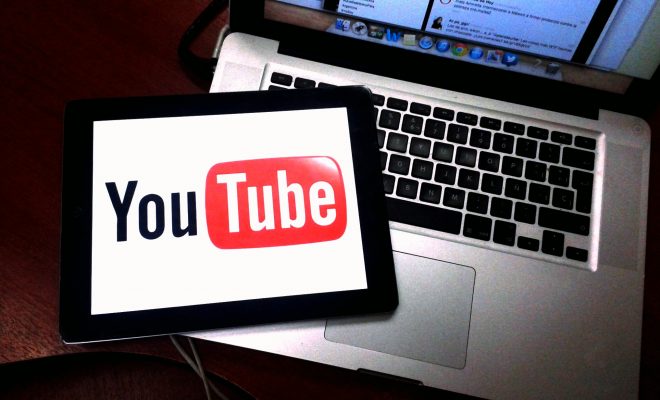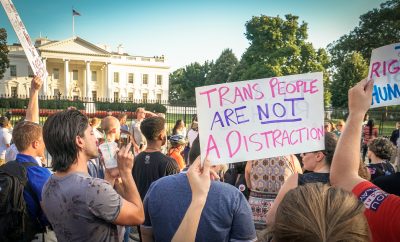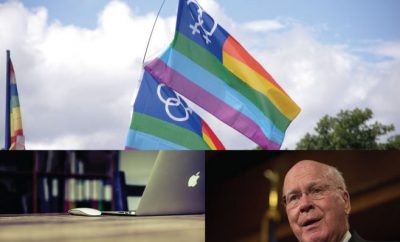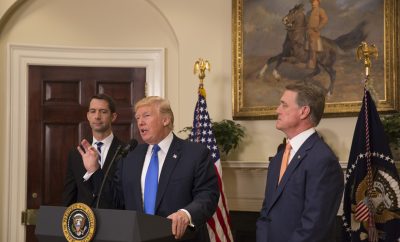 "Youtube" courtesy of Esther Vargas; license: (CC BY-SA 2.0)
"Youtube" courtesy of Esther Vargas; license: (CC BY-SA 2.0)
Technology
Why is YouTube Restricting LGBTQ Content?
YouTube features a “restricted mode” that is supposed to make the content that it displays family friendly. You would think that just means no violent or sexual content. But it seems like the filter often sorts out content made by or for lesbian, gay, bisexual, and transgender people, and over the weekend many users complained about the issue. Some of YouTube’s biggest stars posted screenshots of what their feed looks like in the restricted mode.
Just looked at my videos with the “restricted mode” on. Seeing a bit of a theme here…
LGBT+ content not safe for kids @YouTube? pic.twitter.com/KnhayE4h1y
— fiona ✨ (@neonfiona) March 16, 2017
On Sunday, YouTube said that this filter only affects videos with sensitive content, such as politics, health, and sexuality. But some users called its bluff. Singer-songwriter duo Tegan and Sara, two sisters who are both gay, said that several of their music videos disappeared in the restricted mode. The pair pointed out that the only gay content in the videos is them.
If you put @YouTube on restricted mode a bunch of our music videos disappear. I checked myself. LGBTQ people shouldn’t be restricted. SAD!
— Tegan and Sara (@teganandsara) March 19, 2017
Many users didn’t accept YouTube’s explanation that it was looking into the problem, or that it only affects a small group of users. But the video sharing website has always maintained that the LGBTQ community is important and did so again on Sunday evening.
A message to our community … pic.twitter.com/oHNiiI7CVs
— YouTube Creators (@YTCreators) March 20, 2017
Transgender YouTube star Gigi Gorgeous is one of the people whose videos were blocked, and she said that maybe her clips describing her transition were the reason. But, she said, those videos could be very helpful for young people struggling with their own gender identity, who might not know that there are more people like them out there and are looking for role models.
Some people pointed out that the censoring of innocent videos featuring LGBTQ personalities could help increase stigmatization for young gay or transgender people who look to the internet for advice or inspiration. YouTube described the filter as “an optional feature used by a very small subset of users who want to have a more limited YouTube experience.” Apparently the restricted mode relies on users “flagging” certain posts, so it’s not farfetched to believe that some people with anti-gay sentiments are sitting there flagging posts that upset them.
On Monday, YouTube tweeted again that it’s looking into the issue, but many people want more answers about how it could prevent this from happening in the future.
Glad u guys are looking into your mistake. But perhaps u should also share how u will determine what is “sensitive” and will b restricted? https://t.co/ZARor0Lf1E
— Tegan and Sara (@teganandsara) March 20, 2017








Comments